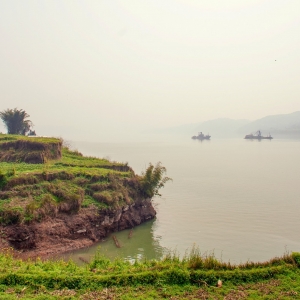The Stream, January 27, 2020: Lake Mead and Lake Powell Could Hit Near-Record-Lows This Year
YOUR GLOBAL RUNDOWN
- A new report from the Bureau of Reclamation paints a dire future for the two biggest reservoirs in the United States.
- Microplastics not only threaten water in the Great Lakes but the coastal areas around them, a new study finds.
- Georgia signs a multi-million-dollar contract with the Army Corps of Engineers to ratify water rights in two suburban counties.
- The government in the United Kingdom delays critical environmental legislation for the third time.
Climate experts emphasize local climate adaptation that reaps benefits for a global economy.
“Adaptation is a global challenge because we’re all connected. What happens in one part of the world has an effect on others in very different parts.” – Richard Klein, a climate change and development expert at the Stockholm Environment Institute. Climate experts say that putting an emphasis on local climate adaptation can benefit global trade markets, Reuters reports. Threats can range from impacts on transboundary water systems to trade disruption, especially involving food supplies. Other risks include job losses or climate disasters that dry up tourism industries in places like the Caribbean.
IN RECENT WATER NEWS
In Case You Missed It:
‘Mass Aging’ of Dams a Global Safety and Financial Risk, UN Report Says – Countries ought to plan for end-of-life care, report argues.
HotSpots H2O: Research Finds High Levels of PFAS Contaminants in Chinese Drinking Water – Drinking water for millions of people in China has unsafe levels of PFAS toxics, according to a study released by Tsinghua University earlier this month.
Microplastics In Great Lakes Pollute Water, Land
The Detroit News reports that a new study found microplastics are not only common in the water of the Great Lakes but are increasingly showing up on the lakes’ shorelines. Experts say the new research could indicate a more serious threat to human health. Eating a fish or other animals from Great Lakes coastal areas means toxic microplastics could move up the food chain to reach humans. Fish growth, survival and reproduction could suffer as well, in turn hurting local economies that depend on the fishing and tourism industries.
TODAY’S TOP WATER STORIES, TOLD IN NUMBERS
$70 MILLION +
Georgia has signed a water storage contract with the U.S. Army Corps of Engineers for over $70 million that allows two suburban Atlanta counties and three cities to pull drinking water from Lake Lanier. Associated Press reports that the agreement marks the first time Gwinnett and Forsyth counties’ rights to the water in Lake Lanier have been ratified. Water and natural resources managers in the area have praised the agreement, saying it solves concerns over long-term water supply and solidifies the area’s right to Lake Lanier drinking water.
In context: In Supreme Court, Florida and Georgia Argue Over Water Use
3RD DELAY
The United Kingdom government has postponed for the third time an environment bill that redraws rules after the UK’s departure from the EU, The Guardian reports. The delay has earned criticism from environmental groups, who say waiting to enact the legislation could be detrimental to issues like water quality and air pollution. If passed, the bill would be the biggest change in environmental regulation in decades. The legislation sets a framework by which ministers can impose new targets on issues like water quality, resource use, biodiversity and air pollution, which were previously regulated by the EU.
ON THE RADAR
A Bureau of Reclamation report illustrated the effects of one of the driest stretches ever recorded in the Southwest, which occurred from April to December last year. The bureau forecasts that Lake Mead and Lake Powell, two large reservoirs on the Colorado River, could reach near-record-low levels this year, The Colorado Sun reports. If water levels drop as expected, extreme water cuts negotiated by the seven basin states in 2019 will go into effect.
In context: Colorado River Basin Conservation Agreements Take Shape
Jane is a Communications Associate for Circle of Blue. She writes The Stream and has covered domestic and international water issues for Circle of Blue. She is a recent graduate of Grand Valley State University, where she studied Multimedia Journalism and Women, Gender and Sexuality Studies. During her time at Grand Valley, she was the host of the Community Service Learning Center podcast Be the Change. Currently based in Grand Rapids, Michigan, Jane enjoys listening to music, reading and spending time outdoors.







Leave a Reply
Want to join the discussion?Feel free to contribute!